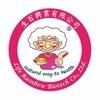
Content sponsored by:
Life Rainbow
Mycotoxins annual survey of mycotoxin in feed in 2020 Taiwan
Published: March 18, 2021
Source : Life Rainbow
In 2020, Life Rainbow Biotech randomly collected 407 feed samples of raw materials and feed mills in farms and analyzed them. The samples were tested for aflatoxins (B1, B2, G1, and G2), zearalenone, fumonisins (B1, B2, and B3) and deoxynivalenol (DON) by the ELISA Mycotoxin analysis kit (Romer Labs®).
Results:
407 feed samples collected, and 80.3% were contaminated with fumonisins and 90.4% contaminated with deoxynivalenol (table 1). All the maximum concentrations of mycotoxin were over the limit of quantification in this survey except the aflatoxins.

Data on corn meal, nursery, and pregnant diet were conducted to give the prevalence of mycotoxins. Out of total 407 samples, 83 samples from corn meal were analyzed that observed feed were contaminated 86.7% of deoxynivalenol, whereas the maximum of positive of fumonisins exceeds the detection limit (table 2).

Of 89 samples of nursery feed collected, and analyzed that feed sample were contaminated with 93.3% deoxynivalenol (table 3).

The occurrence of mycotoxin in pregnant diet also analyzed and founded that deoxynivalenol and fumonisins were most prevalent mycotoxins in pregnant diet, detected in 89.9% and 87.0% of samples respectively. (table 4).

Conclusion:
In 2020, the most prevalent mycotoxin in the feed samples in Taiwan were fumonisins and deoxynivalenol, 80.3% and 90.4% respectively.
To prevent mycotoxins' appearance in grains and cereals, the effective method is to avoid mold infection and populations' formation during grain growth to ensure that the harvested grains are clean and healthy. If the harvested cereals are contaminated, it is necessary to regulate the storage conditions to stop the expanded contamination scope.
Life Rainbow Biotech has researched mycotoxins for 15 years and developed an enzyme-type mycotoxin degrading product: Toxi-Free PLUS®. Toxi-Free PLUS® has three different special activity enzymes to degrading various types of mycotoxins and reducing the toxins' effect—reducing animal hazards. Adding Toxi-FreePLUS® to the feed use as a daily care product, can protect the farmed animals and reduce the damage caused by the mycotoxin made the animal live more comfortably and increase the farmer's profits.
Related topics:
Recommend
Comment
Share

Would you like to discuss another topic? Create a new post to engage with experts in the community.



